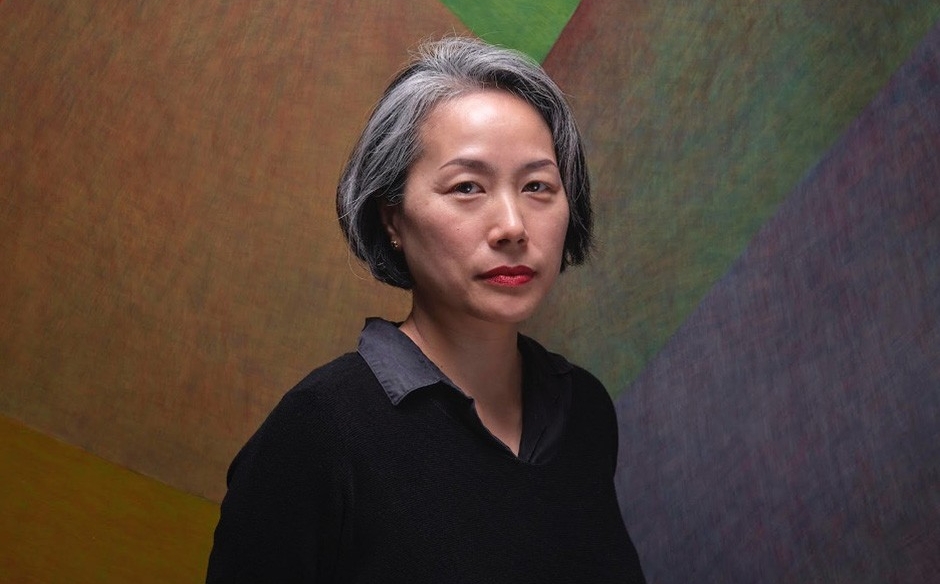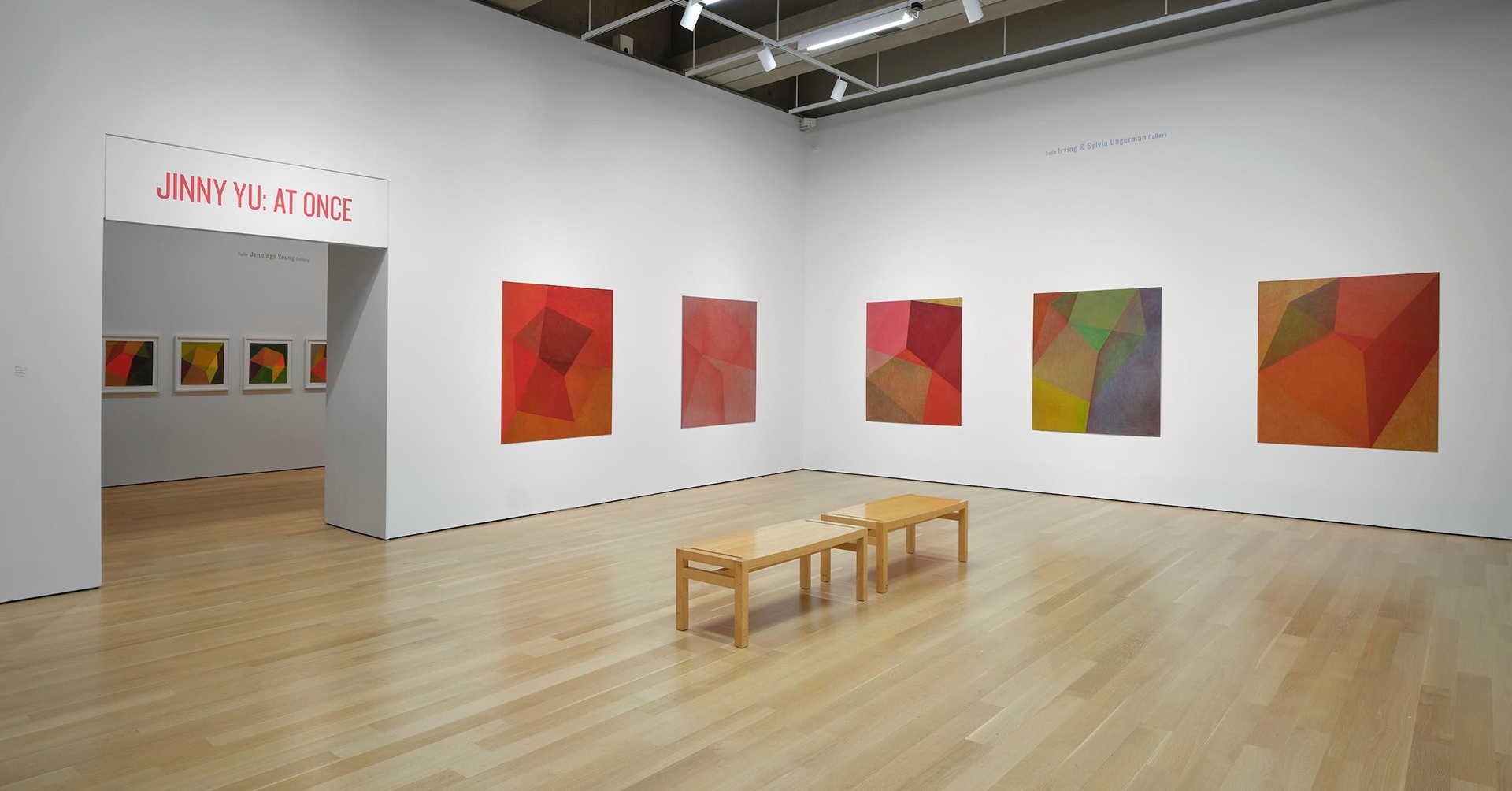How artist Jinny Yu finds meaning in abstraction
 Jinny Yu with her work, “Inextricably Ours 23-07,” 2023. Art Gallery of Ontario. | Photo: Craig Boyko, AGO
Jinny Yu with her work, “Inextricably Ours 23-07,” 2023. Art Gallery of Ontario. | Photo: Craig Boyko, AGO
Jinny Yu, BFA 98, doesn’t just create abstract art — she uses it as a means to examine the world around her.
“The language of abstraction has so much potential of communicating things that are not possible in other ways,” Yu points out. That openness fuels the artist’s exploration of a personal and political question: “What does it mean to live here as a settler on this unceded Indigenous land?”
It’s a theme Yu explores in her upcoming Superposition exhibition at the Guido Molinari Foundation in Montreal, which runs from June 5 to August 24, 2025. Exhibiting at the venue is a full-circle moment for Yu, who studied under Guido Molinari, one of Canada’s most acclaimed abstract artists, during her time in Concordia’s BFA program.
“I was impressed by the confidence he had in himself as an artist,” she says. “He was such an abstractionist and formalist; he wasn’t concerned about subject matter, but about forms and colours. I’m honoured to be presenting my solo exhibition in his former studio, now a museum, and I’m proud to be building on his legacy and carrying on the exploration of abstraction in Canadian art.”
‘The opportunity to exchange ideas’
The exhibition will feature works Yu painted between 2017 and 2024, an expansion of her recent solo debut show at the AGO, Jinny Yu: at once, in which she considered themes about home and belonging — a subject deeply personal to Yu.
Born in Seoul, Yu grew up in Montreal, studied in Toronto, and has lived in Sackville, N.B., Venice and New York. She now divides her time between Berlin and Ottawa, embodying the transnational experience her art often evokes.
 Jinny Yu: At Once exhibition took place from June 22, 2024, to January 5, 2025, at the Art Gallery of Ontario.
Photo: Sean Weaver, AGO
Jinny Yu: At Once exhibition took place from June 22, 2024, to January 5, 2025, at the Art Gallery of Ontario.
Photo: Sean Weaver, AGO
“These works express how I feel. They examine the power relation between host and guest in our society,” says Yu. “When you move around a lot, you start to see things more clearly as you develop points of comparison. I’ve gained an affinity for abstraction through this kind of movement and getting to see places from a distance.”
In Berlin, Yu found a place that fuels her creative drive. “It’s an exciting city for contemporary visual artists. I have many artist friends there, as well as family,” she says.
In Ottawa, Yu found a different kind of fulfillment — the opportunity to share her passion with others. A professor of painting at the University of Ottawa since 2006, Yu sees teaching as a way to give back. “Teaching allows me to contribute to society. I value teaching and the opportunity to exchange ideas with new generations.”
At the core of her pedagogy is a belief in art as a tool for social change — one that can challenge perspectives and spark critical conversations.
“It’s not just about formal concerns, but societal and political concerns. I hope that the students I teach graduate as engaged citizens who can think critically for themselves.”
In an ode to her former teacher Guido Molinari, Yu still carries on a tradition she learned from the celebrated artist and mentor.
“He would always wear a baseball cap to class,” Yu recalls. “The cap cuts the overhead light so you can better focus your vision on the painting. Now, I also wear a baseball cap in my studio when I paint.”